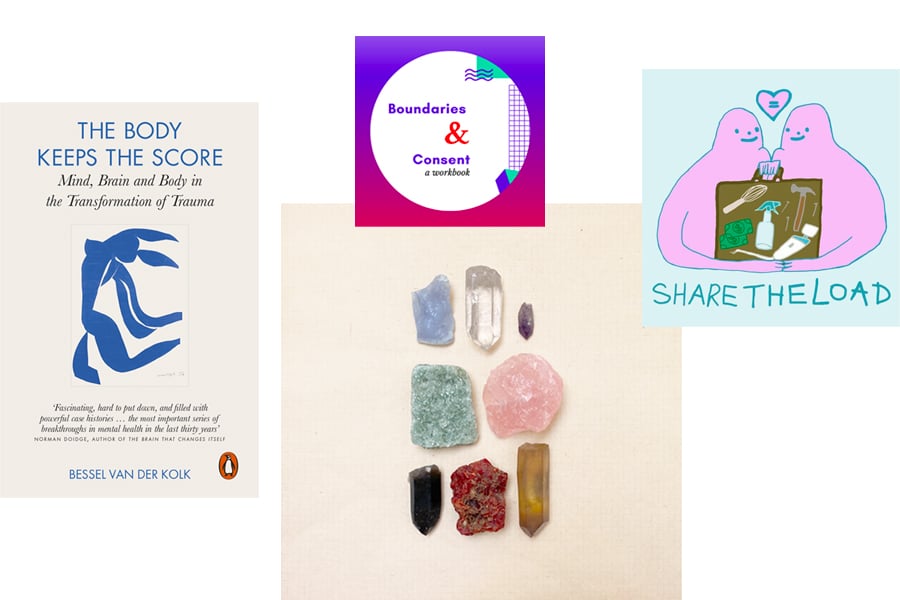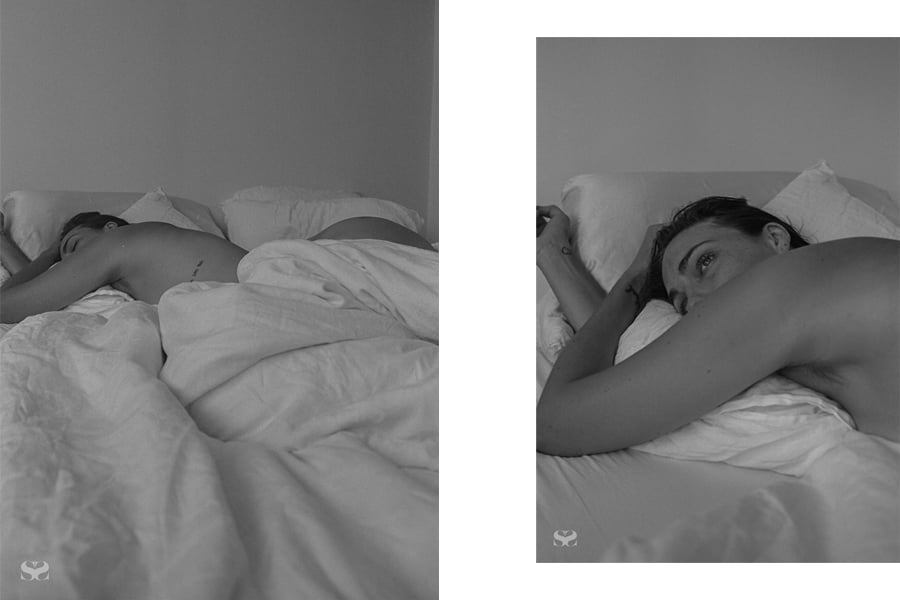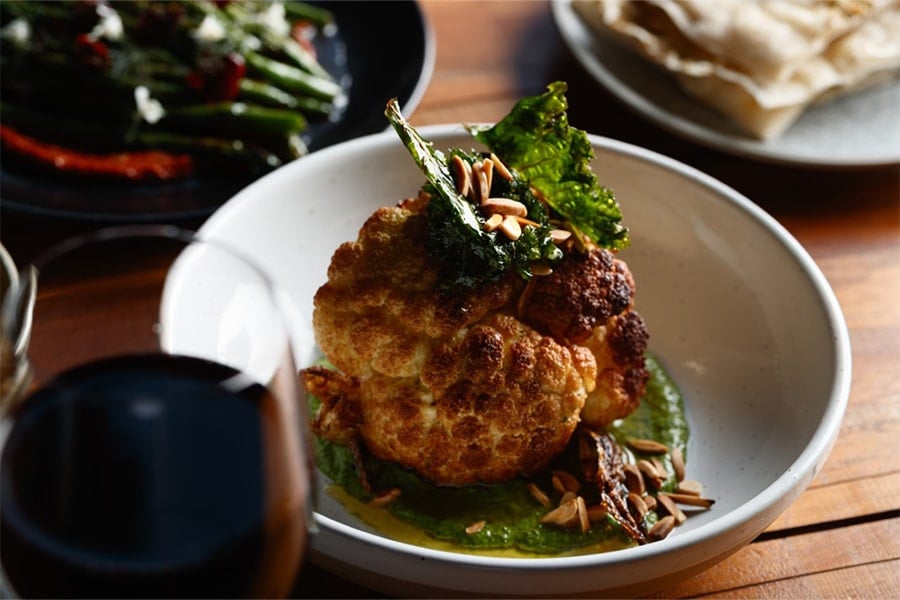
I have a hard time taking long showers. When I take one, my body rattles with anxiety. An invisible clock ticks in my head and I feel like I’m running a race against time, the finish line nowhere in sight.
This is my body’s way of reminding myself that when I was once in a relationship, my boundaries were gradually eroded, along with my Freedom. I often reflect on this moment when my mind is travelling at warp speed and hot water runs over my ears. I think about how a deep violation of boundaries can creep its way into the most simple, private activities – like mould in an old building – suddenly there, after months of living between supposedly white walls, something damp and spoiling beneath the surface. I think about how showers – usually the most relaxing time of most people’s days – serve as a perpetual reminder that the chief violator of my consent and subsequently, my Freedom, continues to live in the spaces between my joints, reminding me of the body I once went to immeasurable lengths to ignore.
“Strong boundaries let us take down the walls that we’ve built to protect ourselves. We build walls to make ourselves invulnerable because we don’t trust ourselves to handle situations where we don’t feel comfortable, or where we’re feeling pushed.”

I learnt about boundaries very soon after the relationship ended. As part of the process of attempting to realign with a sense of Freedom and worth, I went to a ‘Fundamentals of Trauma Healing’ workshop, which placed a heavy focus on the ways in which setting boundaries could function as a modality to find liberation once again. The workshop taught me a lot in 48 hours: that consent and the boundaries that live amongst consent, is both a language and a practice, and that creating a strong relationship with both is vital to not only self-preservation, but Freedom.
Mia Schachter is a certified Intimacy Coordinator, consent educator, speaker and podcaster whose work has meant that boundaries are central to their practice, believing that they play a fundamental role in the ways we are able to liberate ourselves. “Strong boundaries let us take down the walls that we’ve built to protect ourselves. We build walls to make ourselves invulnerable because we don’t trust ourselves to handle situations where we don’t feel comfortable, or where we’re feeling pushed.” Mia explains to me over the phone when I ask them about what healthy boundaries look like.
I didn’t realise until my trauma healing weekend that the daily, visceral reactions I had towards the person I was supposedly in love with were not in fact the feeling of love. The nausea, the shakiness, the lack of focus, was merely my body’s futile effort to alert me that my boundaries were being obliterated before my eyes.
“We actually can’t know what our boundaries are ahead of time, because they often change and shift, or they’re context or relationship dependent. But what we can know is what they feel like ... ”

“We actually can’t know what our boundaries are ahead of time, because they often change and shift, or they’re context or relationship dependent. But what we can know is what they feel like,” Mia says. “So, we can practice and get clarity on feeling them, and knowing when a boundary gets pushed. You may have this feeling of pulling away or your shoulders could go up, or you may start to notice the thoughts that you’re having. If we notice what those indicators are for us that our boundaries are being pushed, we have a much better chance of handling them when we feel them.”
For myself, it looks like the flip of a stomach. The set of a jaw. Rigidity in my joints. A physical alarm system that once activated, is difficult to disarm.
What my body unfortunately did not alert me of (although you can believe me when I say it probably tried) was that the violation of one boundary swiftly becomes two, and so on and so forth until when all is said and done, trust is as unfamiliar as swimming is to a cat. What is more, is that you’ll be shackled to the same reactions which have taken root in your somatic nervous system for years to come.
When I initially thought about writing on Freedom, I landed on the sense of liberation that has come with my experience of living as an out queer person, and how fragile that liberation is for so many LGBTQI+ folks. Because the Freedom to exist safely in our bodies and identities is not something that most of us experienced in our formative years, and many still don’t know it today. There is much to be explored when it comes to the ways systemic oppression and social justice can intersect with boundaries, but if this year has made one thing clear, it’s that without them, we have very little chance of dismantling oppressive systems at large if we’re not able to use our internal boundaries to mark a parameter.

Kamya O’Keeffe is a guide, a facilitator, and a strategic mentor of transformative journeys whose work focuses predominantly on women. She also happens to be my mother, and one who works with boundaries in all of her workshops. “When we can hold our own boundaries of what feels ok for us, we can then start to do the work in the world with them and hold boundaries around social justice and our ethics and values,” she explains. “It’s from the personal to the planetary. The individual to the cultural [or the communal].”
For most of us to recognise and honour our Freedom, it takes unlearning the ways we overlook our own bodies and reject them constantly, often as a tactic to survive. “If we’re talking about the revolution or liberation at large, having clear boundaries tells other people how to treat you. And it also tells people what you’re available for,” Schachter says. “And those boundaries actually serve to preserve your energy, your time and your other resources. When you’re able to preserve those resources, you then can show up whole and do the work that you need to do without those boundaries.” They continue, “boundaries give us the restraint in which we can move within a structure. Without that restraint. We just go wide instead of deep; we just get spread really thin.”
"The fact that people, often those who partake in oppressive systems, violate such boundaries is not our fault."
When it comes to self-preservation, author Bethany Webster describes women’s taught lack of boundaries as ‘self- fragmentation’, in which we’ve learned to “unconsciously and automatically oppress ourselves and other women, as a means of survival.” She writes, “disabling our own connection with ourselves to some degree and prioritising external approval in a world that favours rich, white men over everybody else.” This can often be noticed most obviously when we attempt to set a boundary and are met with ridicule, confusion, or upset. A clear indicator that somebody is benefitting off of a lack of boundaries, and doesn’t wish for the dynamic to change – even if said dynamic either works off of oppressive constructs, or is at our expense.
Speaking further on the subjugation of women’s boundaries, O’Keeffe explains, “The whole process of patriarchal conditioning is that we’re actually disconnected from ourselves. Our intuition and ways of knowing what’s okay, aren’t always validated by our rational, mechanistic worldview of the culture we live in.” O’Keeffe continues, “so we override our own knowing. This is the disconnect that we have from conditioning, in that our own sense of what’s right, or what we know, isn’t worthy of our attention or worthy of listening to. And so, if we ignore those internal signals that we’re not listening to, we are disconnected from ourselves and then it’s really hard to have a boundary.”
It’s important to note that when we come to understand all the ways our boundaries are systemically violated, a familiar reaction is blame and guilt. I seldom reflect on my shower anxiety – and entire relationship – without feelings of shame towards the fact that I let somebody else discern how long was too long to stand under running water. The fact that we were raised without the term ‘boundaries’ in our vernacular is not our fault. The fact that people, often those who partake in oppressive systems, violate such boundaries is not our fault. The fact that we have not been reared to identify how boundaries feel in our bodies and uphold them, is not our fault.

It can be very easy to feel systemically and personally gaslit by the entire conversation around boundaries, especially if we are trying to set them for the first time. Because so many of us live in a state of disconnect to the way boundaries feel in our bodies, undermining these feelings can run rampant in our everyday behaviour. We place value on the rational process over the intuitive, and ignore our own signals of discomfort. This can often be solidified by regular violators of boundaries, telling us we are overreacting, overthinking, or dramatising a situation.
In my own situation, this gaslighting played a key role in my inability to set boundaries, and subsequently, left me physically trapped at the mercy of my intuition, which presented itself in ailments that rendered me unable to take part in daily tasks, like showering without stress. This, of course, is an extreme presentation of a physical reaction to a lack of boundaries, and the ways such can inhibit our Freedom from a literal lens. “If your sympathetic nervous system is always activated because you’ve sensed that you shouldn’t have boundaries, or that they’re going to be ignored, then you never get to the rest and digest state of the parasympathetic nervous system, where you can actually come down and replenish yourself. You’re just constantly on high alert.” Schachter notes, when I explain that I have only been liberated in love when my boundaries are welcome.
"What I’ve come to learn about liberation as a whole – romantically, personally, and systemically – is that it can only flourish within a safe structure."

What I’ve come to learn about liberation as a whole – romantically, personally, and systemically – is that it can only flourish within a safe structure. Without the bounds to develop said structure, our chances of feeling truly liberated, to trust ourselves, to love unconditionally, to stand against oppressive systems, dwindle when we choose to ignore our personal limits. When this happens, liberation as we know it can be covertly, violently, and hastily ripped from our grasp before we’ve come to experience the full scope of what it truly means.
As Schachter has pointed out, it can be difficult to know what these might look like ahead of time. Before we are in situations that churn our stomachs or send our shoulders to our earlobes, it’s not so simple to discern what may affect us for years to come. However, if there is one thing we can recognise, it’s that when we are able to understand the ways in which boundaries can serve as a vehicle for liberation, the idea of setting them becomes slightly less daunting.
Boundaries are vital to our survival. They are vital to our Freedom. They are vital to how we love and how deeply we fall. They are vital to our safety. There is beauty in a boundary, in asking for what you need, in holding the line for yourself when others may not. In setting yourself free with the understanding that you are safe within yourself if you listen closely enough.
Our Freedom issue is available to purchase now on newsstands or through our online shop.



